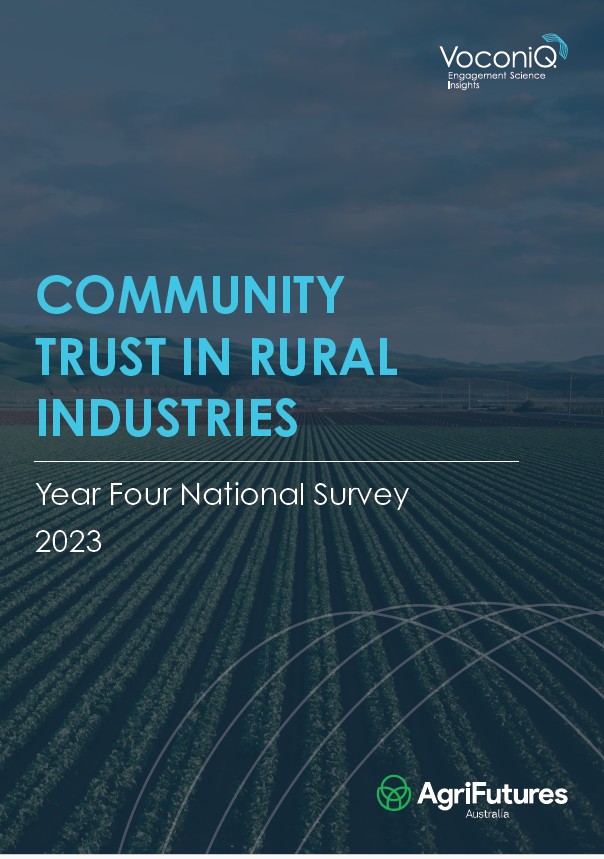
Community Trust in Rural Industries

Research overview
Increasingly, the public are influencing benchmarks for best practice across the agriculture, fisheries and forestry sector. This collaborative program of research involving seven Rural Research and Development Corporations (RDCs) explores the relationship between industries and the social context in which they operate to support an industry-level response to addressing community trust.
The community trust program of research is a multi-industry collaboration to understand, track and build community trust. Measuring community sentiment enables rural industries to better understand, and where necessary, take action, to ensure industry practices align with community expectations.
The research commenced in 2019 and has canvassed almost 20,000 Australians over three years, via a representative, national, annual survey. The longitudinal nature of this research has provided a rich set of data, highlighting the dynamic nature of community sentiment.
The program is an Australian first – a partnership involving 11 Rural Research and Development Corporations (RDCs), the National Farmers’ Federation and the NSW Department of Primary Industries (NSW DPI). As this collaborative program of work progresses, the sector is gaining access to a deeper, clearer understanding of what leads to community trust in rural industries.
Researching findings
Insights into the drivers of community trust and acceptance for the rural industries sector indicate that trust in rural industries is high—Australians believe fishers, farmers and foresters play an important role in society and are a vital part of Australia’s history, however there are areas of community uncertainty that present risks and opportunities for the sector.
Research to date has demonstrated that acting on issues that matter to Australians is not only in line with community expectations for how rural industries should operate but is also the primary pathway to growing community trust in, and acceptance of, these industries. Fostering trust between rural industries and the community will give farmers, fishers and foresters the freedom to innovate and try new methods to grow food and fibre.
Key insights from the three-year research program indicate that trust in rural industries is dependent on three drivers: environmental responsibility, responsiveness to community concerns and the importance of products produced by rural industries.
Resources

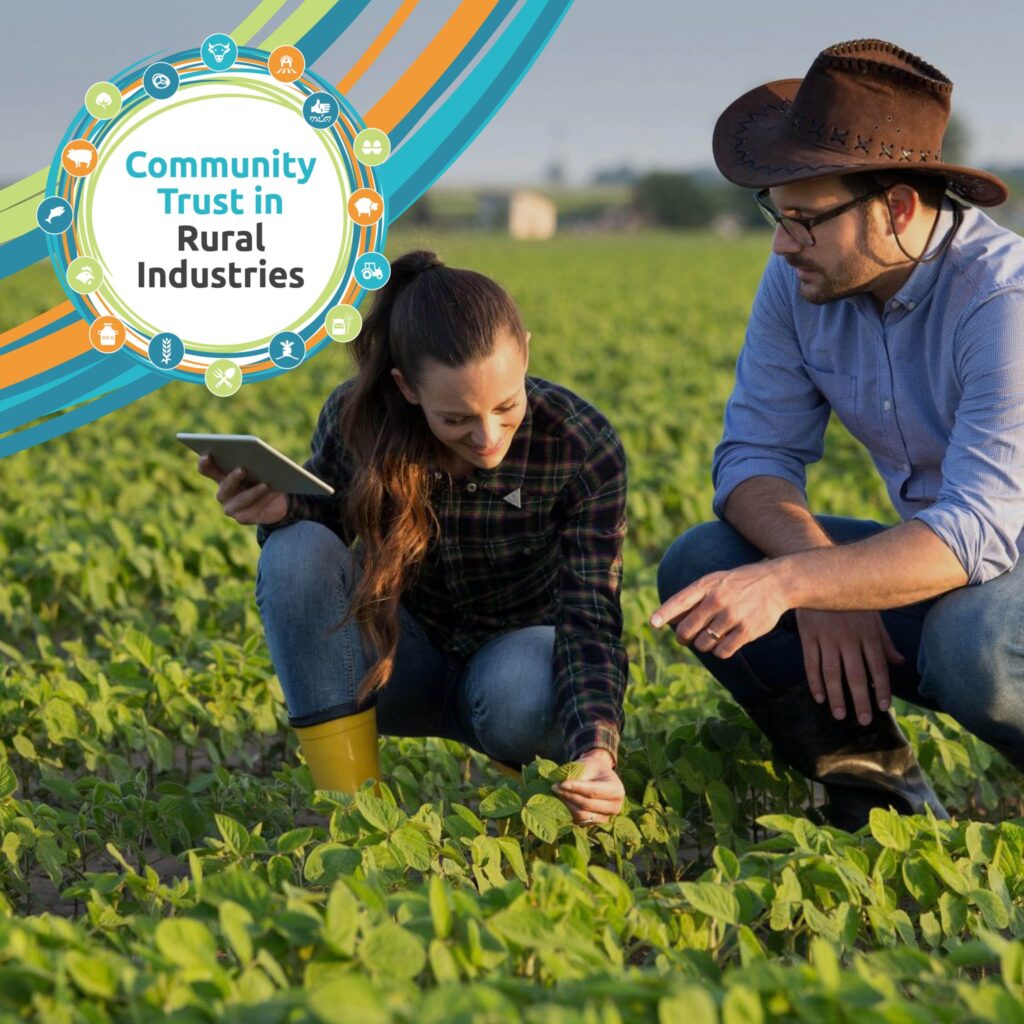
Community Trust in Rural Industries: Year 4 key insights
Find out more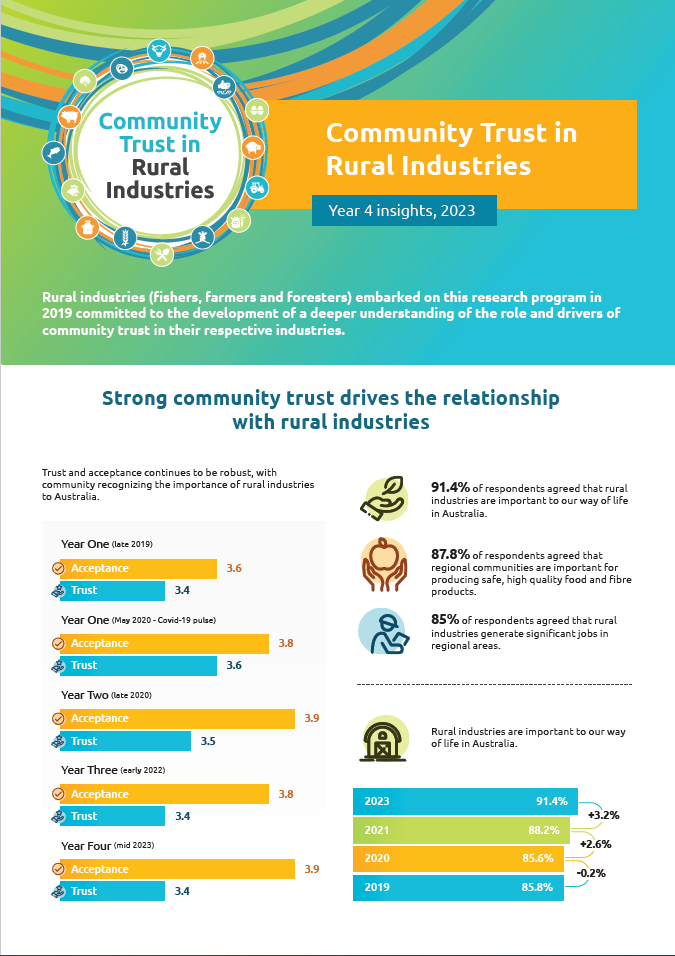
Community Trust in Rural Industries: Year 4 infographic
Find out more
Community Trust in Australia's Rural Industries: Year 3 national survey 2022
Find out more
Year three key insights - research summary
Find out more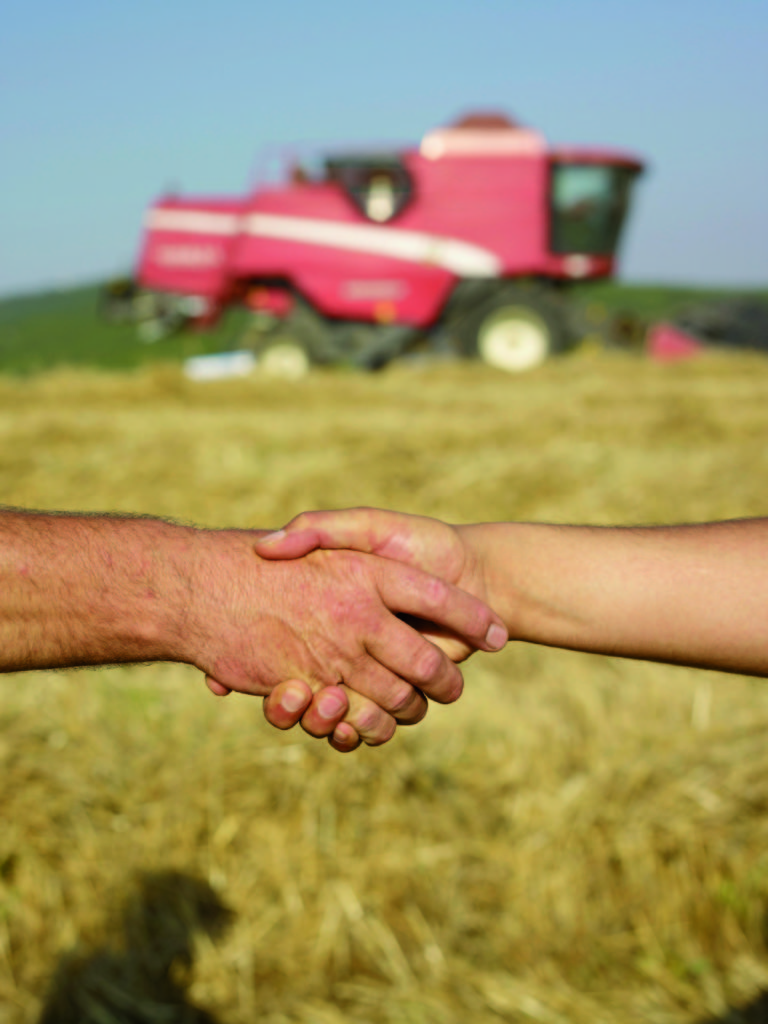
Fishers, farmers and foresters trusted by the community
Find out more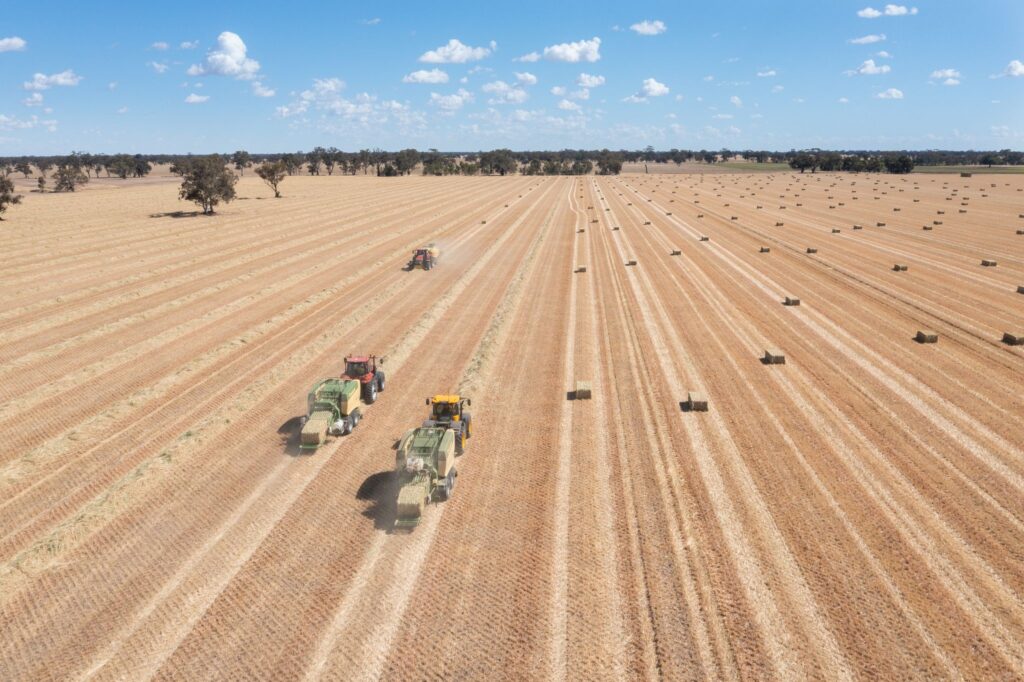
Year three key insights - infographic
Find out more
Community Trust in Rural Industries: Australian Eggs case study
Find out more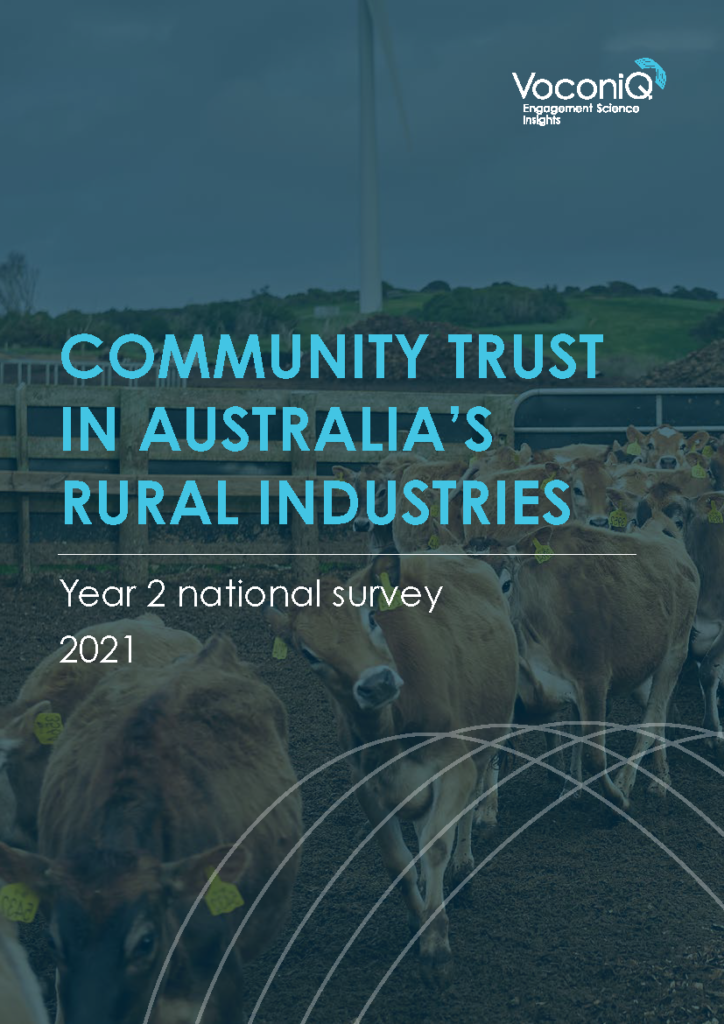
Community Trust in Australia's Rural Industries: Year 2 national survey 2021
Find out more
Community Trust in Australia's Rural Industries: Year two Findings – August 2021
Find out more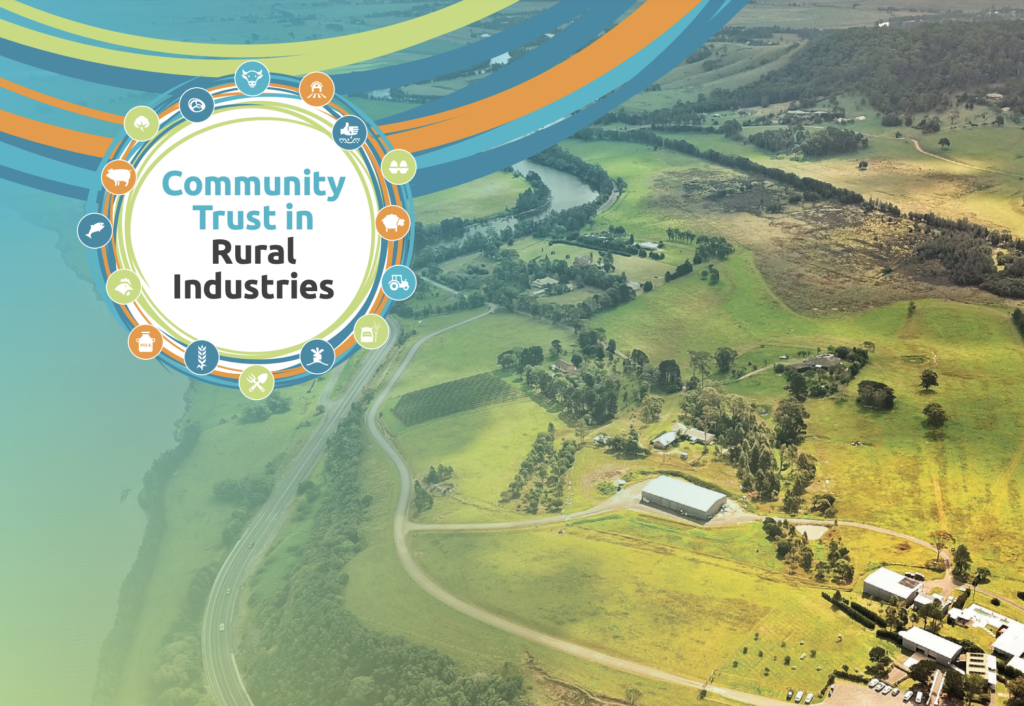
Year two key insights - research summary
Find out more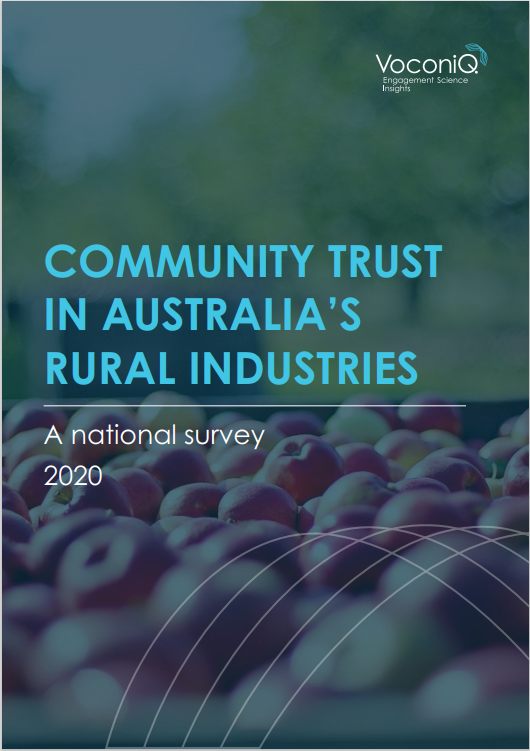
Community Trust in Australia's Rural Industries: Year 1 national survey 2020
Find out more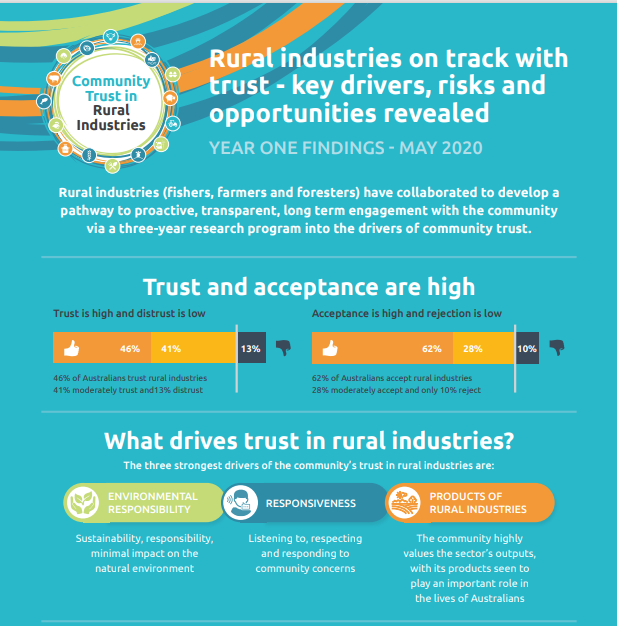
Year one key insights - infographic
Find out more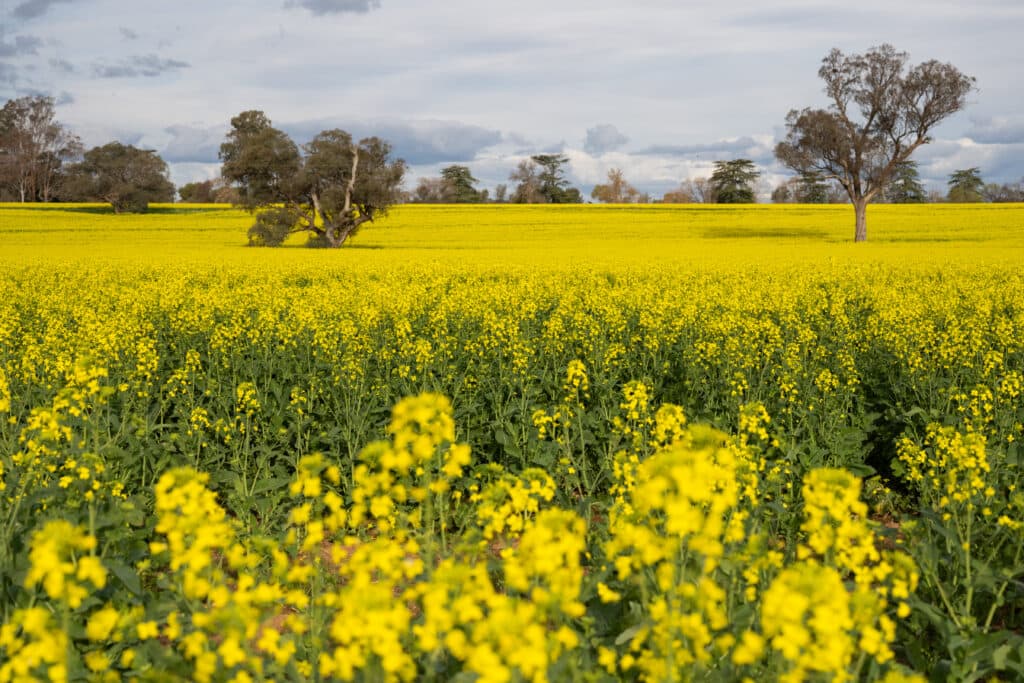
Community Trust Fact Sheet
Find out moreCommunity Trust Videos
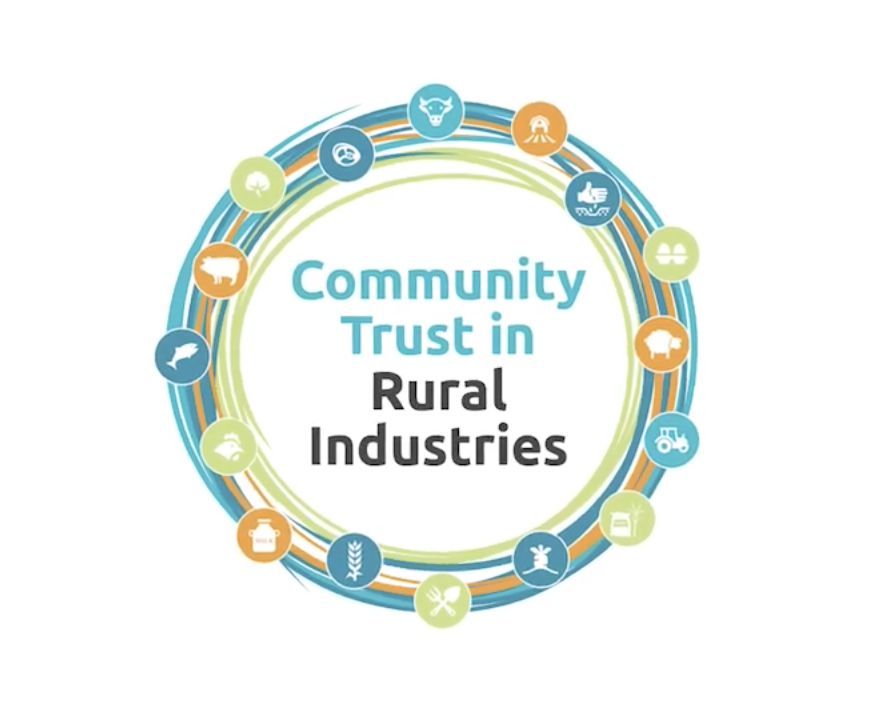
Community Trust in Rural Issues
Find out more
What is the Community Trust in Rural Issues Program?
Find out more
What are the new insights for 2021?
Find out more
What do the results mean for industry?
Find out more
Community Trust in Rural Industries: 12 month update
Find out more
What is the Community Trust in Rural Industries project?
Find out more
Why is trust important?
Find out more
What are the three key Community Trust in Rural Industries 12 month research findings?
Find out more
What changes are needed as a result of the Community Trust in Rural Industries research findings?
Find out more
What happens if industry does nothing with the Community Trust in Rural Industries findings?
Find out more
What does success in community trust and acceptance look like for rural industries?
Find out more
The power of a three-year Community Trust in Rural Industries program
Find out more
Community engagement to build trust – Australian Eggs’ experience
Find out more
Australian Eggs and productive community engagement
Find out more
Egg industry response to community feedback
Find out more
Community engagement and feedback changes the conversation
Find out more
Community engagement drives cultural change within the egg industry
Find out more
Community Trust research enables productive change and greater focus
Find out moreFAQ's
What is community trust?
Community trust relates to the nature of the relationship between industries and the social context in which they operate. Decreasing trust can lead to reduced industry productivity, profitability, and sustainability resulting from increased regulation, limited market access, and disincentives to invest in infrastructure, among other consequences.
What is this program delivering for rural industries?
Research to date has delivered practical insights for rural industries to develop an aligned approach to proactive, transparent and long-term engagement with the community.
Industries have benefited from an analysis of the underlying values driving community attitudes and trust towards food and fibre production, insights to effectively monitor, anticipate and respond to shifts in the levels of trust towards rural industries and best practice approaches, strategies and interventions for building, rebuilding and maintaining community trust.
Who is leading the community trust research?
The community trust program of research is being undertaken by data science and community engagement company Voconiq, and Seftons & Associates manage the program delivery.
Who is funding the community trust research?
The program is a jointly funded initiative of AgriFutures Australia, Australian Eggs, Australian Pork Limited, Cotton Research and Development Corporation, Dairy Australia, Fisheries Research and Development Corporation, Hort Innovation, Sugar Research Australia, Grains Research and Development Corporation, LiveCorp, Meat and Livestock Australia and the NSW Department of Primary Industries. National Farmers’ Federation is also a project partner and AgriFutures Australia is the managing agent.
Timeline
Date |
Activity |
| 2019 | Community trust in rural industries program commenced |
| 2020 – Year one research | Engagement with program funders to determine program goals Interviews with industry participants to determine key issues related to community trust in rural industries Desktop research to understand how these issues are discussed and framed in the public conversation National survey to determine the drivers of community trust in and acceptance of Australian rural industries and determine a baseline of Australian community attitudes toward issues related to Australian rural industries. |
| 2021 – Year two research | National survey of attitudes toward rural industries to allow for comparisons over time Industry-specific focal studies Deep dive into the identified drivers of community and the role and risk that gaps in community understanding of rural industries plays in the status of its relationship with community members |
| 2022 – Year three research | Continuation of national survey of attitudes toward rural industries to allow for comparisons over time Industry-specific focal studies. |
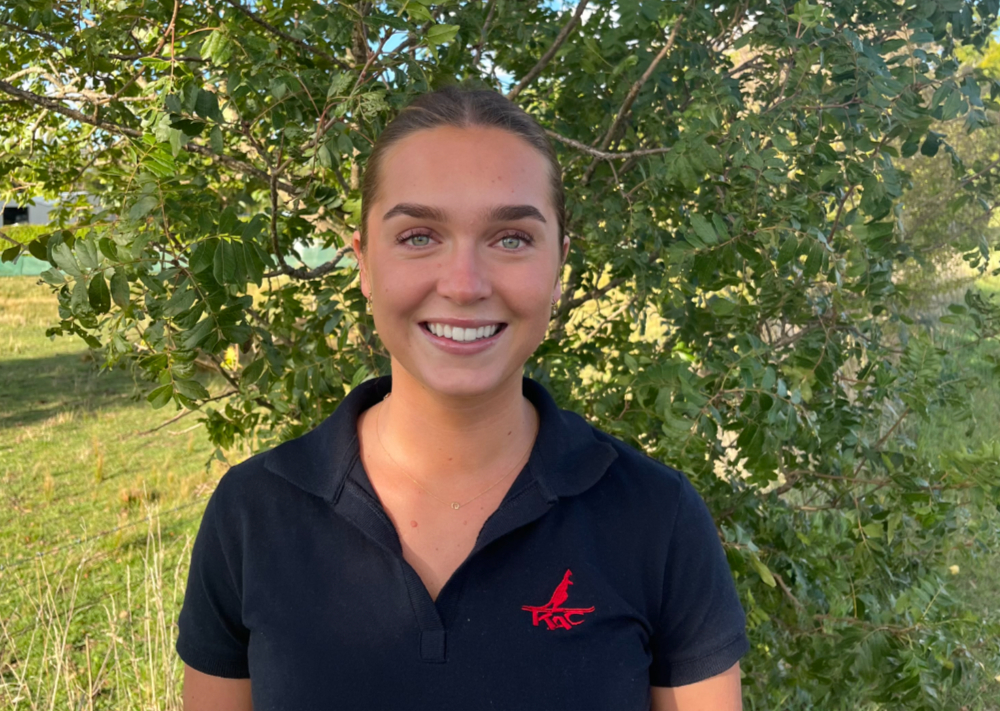
Budding cotton scientist set on creating a crop that can cop heat-stress
From a concrete jungle to a cotton field, Georgie Oldham, has been working hard to transplant her urban roots into the rich soils of the NSW Northern Tablelands.
3 min read

 EMERGING INDUSTRIES / 25.07.24
EMERGING INDUSTRIES / 25.07.24
Essential tools and proactive biosecurity measures for sustainable Sea Cucumber industry growth
Sea cucumbers, small marine animals found on the seafloor, are characterised by elongated, soft bodies and a leathery texture, resembling the shape of a cucumber. Sea cucumbers are also sought after for their medicinal properties and health benefits.
4 min read
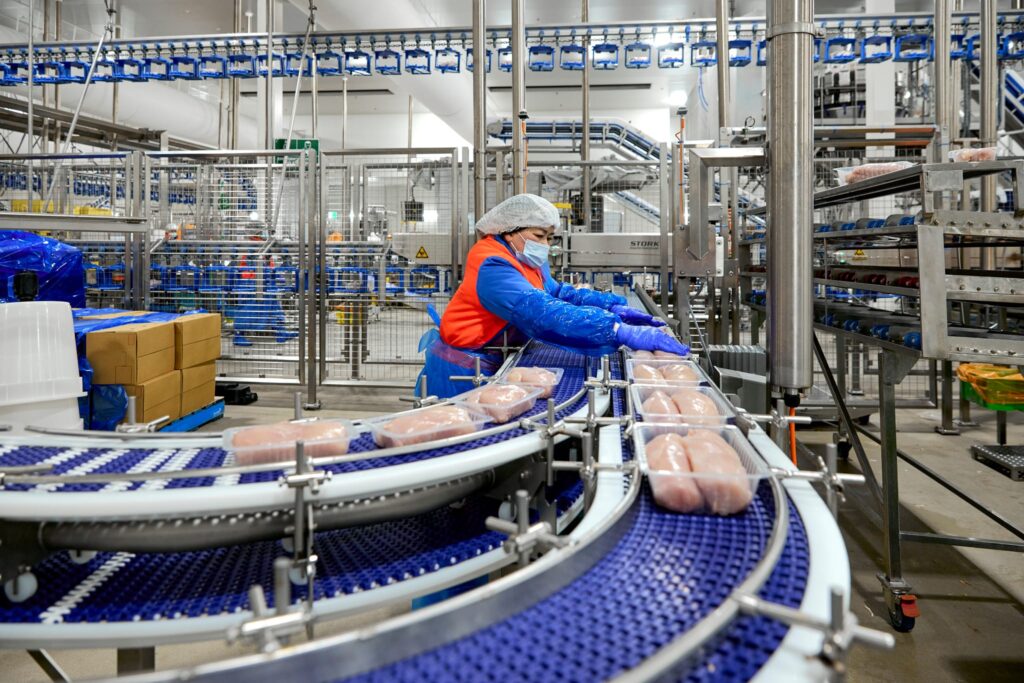
 CHICKEN MEAT / 23.07.24
CHICKEN MEAT / 23.07.24
New workforce strategy for Australia’s $8 billion+ chicken meat industry
Today marks the release of the first workforce strategy for Australia’s chicken meat industry, developed by AgriFutures Australia in conjunction with the Australian Chicken Meat Federation (ACMF)
4 min read
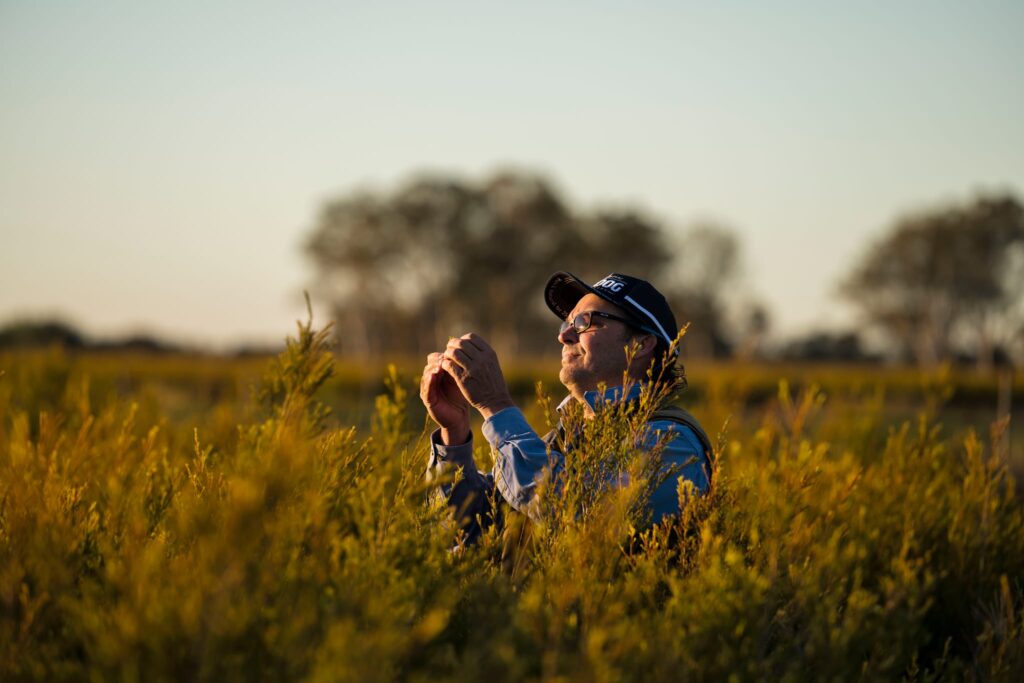
 NATIONAL CHALLENGES AND OPPORTUNITIES / 22.07.24
NATIONAL CHALLENGES AND OPPORTUNITIES / 22.07.24
‘One-size-fits-all will no longer suffice’: AgriFutures Australia reveals new revenue opportunities for rural industries
This landmark piece of research highlights the importance of tailored support and investments, ensuring that every unique sector can thrive amid a rapidly changing agricultural landscape.
4 min read
